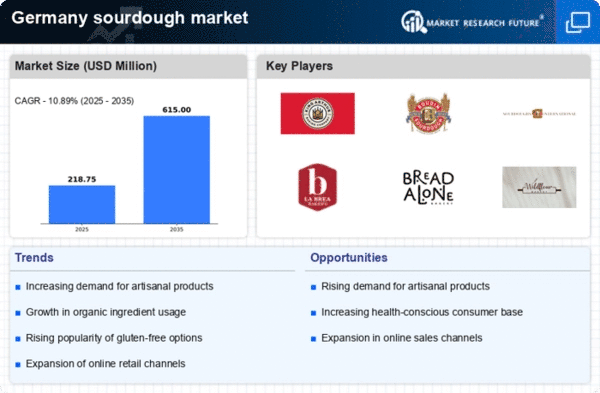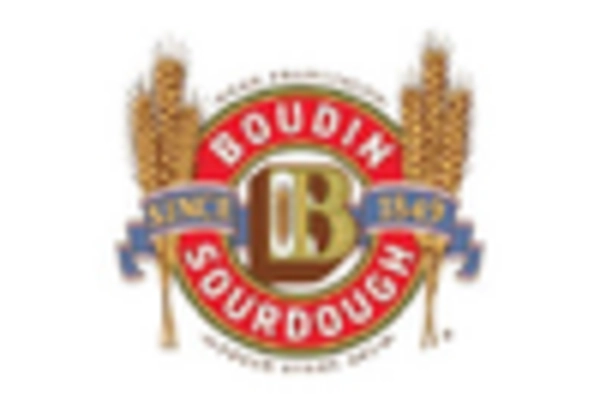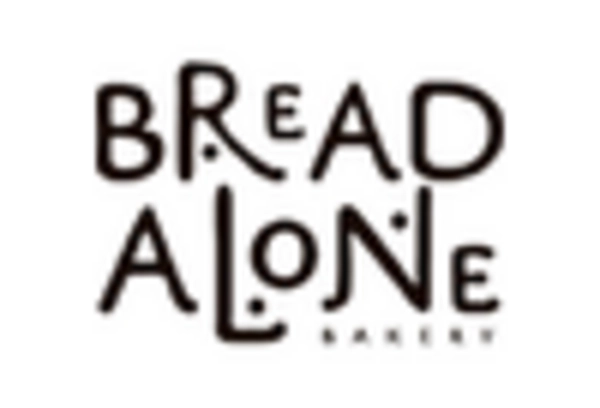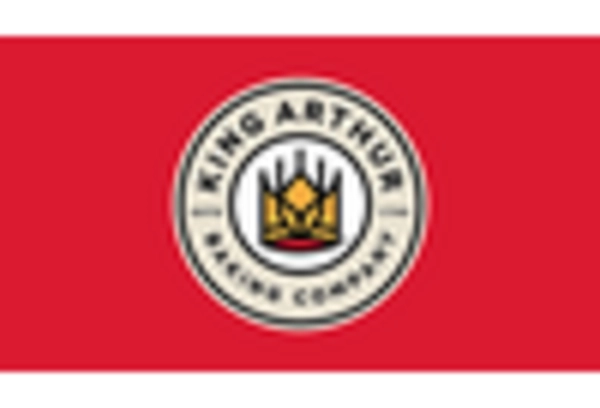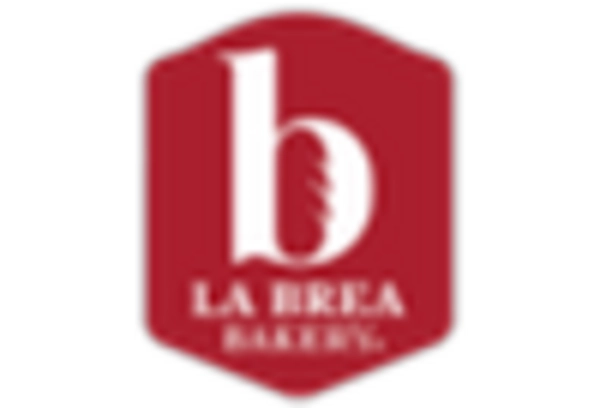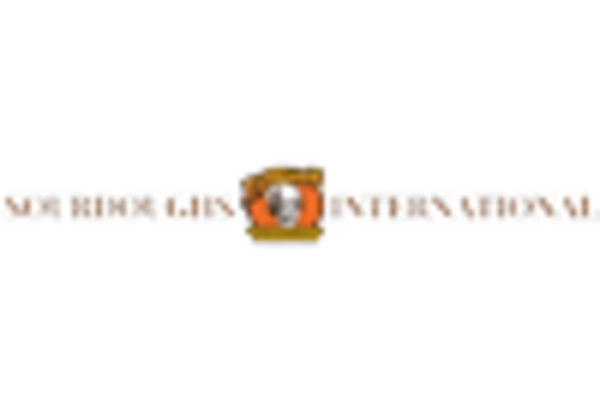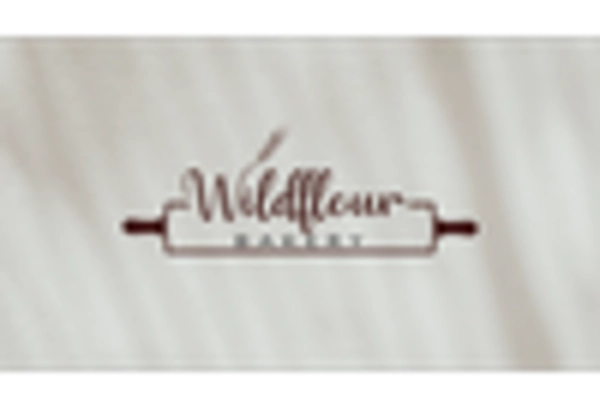Innovative Flavor Profiles
The sourdough market in Germany is witnessing a surge in innovative flavor profiles that cater to evolving consumer preferences. Bakeries are experimenting with various ingredients, such as herbs, spices, and even fruits, to create unique sourdough varieties. This trend is indicative of a broader movement towards culinary exploration, where consumers are eager to try new and exciting flavors. Market data suggests that sourdough varieties with added ingredients have seen a sales increase of around 20% over the past year. This diversification not only attracts adventurous eaters but also encourages repeat purchases as consumers seek to discover their favorite combinations. As the market continues to evolve, the introduction of novel flavors is likely to play a crucial role in sustaining interest and driving growth within the sourdough market.
Emphasis on Local Ingredients
The sourdough market is increasingly influenced by a consumer preference for locally sourced ingredients. As awareness of food provenance grows, many German consumers are prioritizing products that utilize regional grains and other local components. This trend aligns with a broader movement towards sustainability and supporting local economies. Market analysis indicates that products featuring local ingredients can command a premium price, with consumers willing to pay up to 10% more for bread made from locally sourced flour. This emphasis on locality not only enhances the flavor profile of sourdough but also fosters a sense of community and connection between consumers and producers. As the sourdough market continues to evolve, the integration of local ingredients is likely to become a defining characteristic, further enriching the diversity and appeal of sourdough offerings.
Rising Artisan Bakery Culture
The increasing popularity of artisan bakeries in Germany has a profound impact on the sourdough market. Consumers are increasingly drawn to the craftsmanship and quality associated with artisanal products. This trend is reflected in the growth of small-scale bakeries that specialize in sourdough, which has seen a rise of approximately 15% in the last year alone. The demand for unique flavors and traditional baking methods is driving consumers to seek out these specialized products. As a result, the sourdough market is experiencing a shift towards premium offerings, with consumers willing to pay a higher price for authentic, handcrafted sourdough bread. This artisan movement not only enhances the market's diversity but also fosters a deeper appreciation for traditional baking techniques, thereby solidifying the position of sourdough in the German culinary landscape.
Increased Interest in Fermented Foods
The growing awareness of the health benefits associated with fermented foods is significantly influencing the sourdough market in Germany. Fermented products, including sourdough bread, are recognized for their potential to improve gut health and enhance digestion. Recent studies indicate that approximately 60% of German consumers are actively seeking out fermented options in their diets. This trend is likely to bolster the demand for sourdough, as it is perceived as a healthier alternative to conventional bread. The sourdough market is thus positioned to benefit from this health-conscious shift, as consumers increasingly prioritize products that contribute to their overall well-being. Furthermore, the educational initiatives surrounding fermentation processes are likely to enhance consumer knowledge and appreciation, further driving sales in this segment.
Growing Demand for Gluten-Free Options
The sourdough market is also adapting to the rising demand for gluten-free products among German consumers. With an increasing number of individuals identifying as gluten-sensitive or opting for gluten-free diets, there is a notable shift towards alternative sourdough options made from gluten-free grains. Recent surveys indicate that approximately 25% of consumers are actively seeking gluten-free bread alternatives. This trend presents a significant opportunity for bakeries to innovate and expand their product lines to include gluten-free sourdough varieties. By catering to this niche market, businesses can tap into a growing consumer base that prioritizes dietary restrictions while still enjoying the unique flavors and textures of sourdough. The potential for growth in this segment could lead to a more inclusive sourdough market, appealing to a broader audience.


